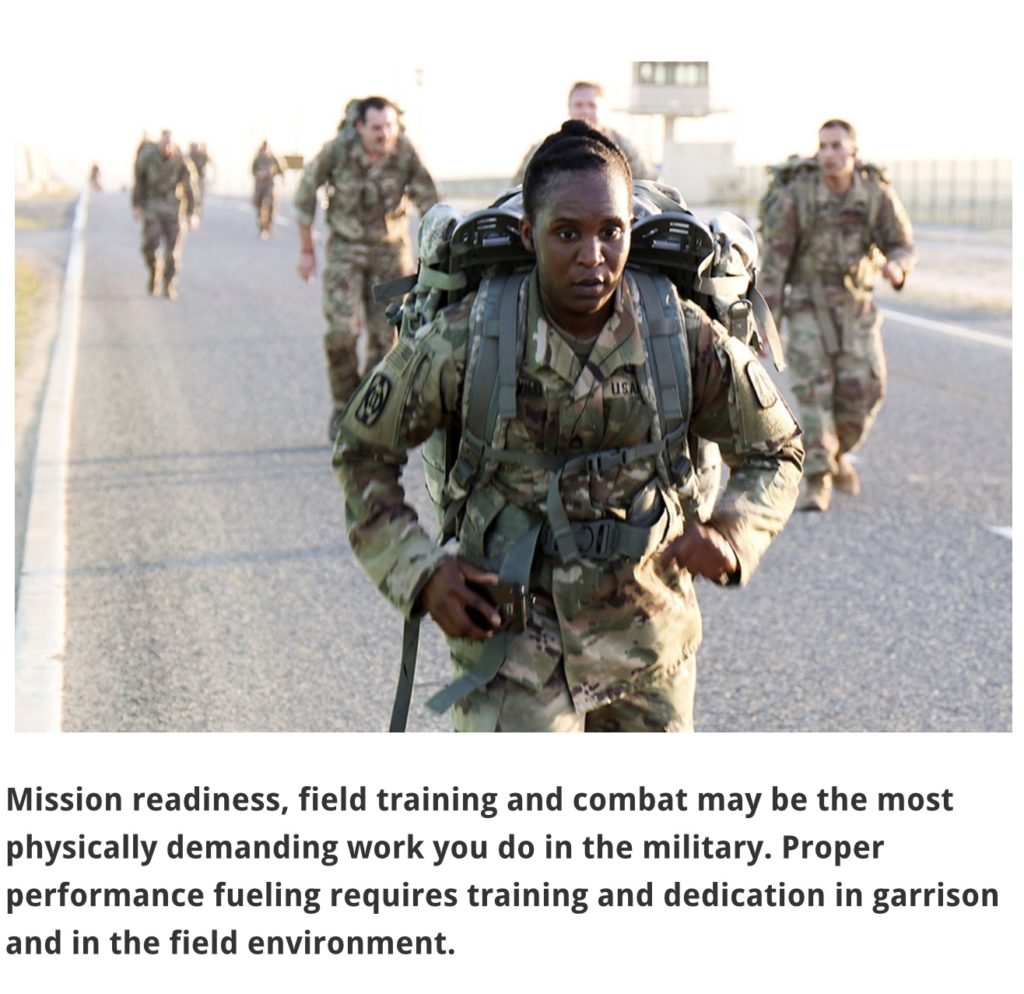
Source: https://phc.amedd.army.mil/topics/healthyliving/n/Pages/PerformanceNutrition.aspx
Supplements and Soldiers is an educational program that aims to address dietary supplement use within the United States Army. Surveys among the armed forces show that dietary supplement intake is higher within this population ranging anywhere between 60 and 70 percent of service members taking at least one dietary supplement daily. (Knapik, J. et al, 2018) Service members are also more likely to use strength and bodybuilding supplements such as protein or amino acids, creatine, and various combination products marketed as physical performance enhancers. (Knapik, J. et al, 2018) While many dietary supplements on the market today are much safer for individuals to consume, some dietary supplements marketed for weight loss, bodybuilding, or performance enhancement contain dangerous substances and are possibly unsafe. (Kao, T. et al, 2021) Our goal is to educate members of the United States Army on how to determine if they need a dietary supplement and how to assess if a supplement may be dangerous to them. We also want to provide resources for officers and higher enlisted to pass along to their soldiers.
An important point is this program is not designed to discourage dietary supplements, but to educate and help soldiers understand potential risk of consuming dietary supplements.
Program Rationale:
Half of the US population regularly takes dietary supplements, but ensuring they are safe has proven difficult since the Dietary Supplement Health and Education Act of 1994 (DSHEA) became law. (Lieberman, H., Austin, K., & Farina, E., 2018) Surveys among the armed forces show that dietary supplement intake is higher within this population ranging anywhere between 60 and 70 percent of service members taking at least one dietary supplement daily. (Knapik, J. et al, 2018) This means around ⅔ of the 455,000 soldiers currently serving take a dietary supplement every day. While many dietary supplements on the market today are much safer for individuals to consume, some dietary supplements marketed for weight loss, body-building, or performance enhancement contain dangerous substances and are possibly unsafe. (Kao, T. et al, 2021) Service members are more likely to use strength and bodybuilding supplements such as protein or amino acids, creatine, and various combination products marketed as physical performance enhancers. (Knapik, J. et al, 2018) Younger soldiers are more likely to report using 5 or more dietary supplement categories and using antioxidants, bodybuilding, herbal, and weight-loss supplements while older soldiers (≥40 years) have a higher use prevalence for multivitamins and fish oils. (Knapik, J. et al, 2018) This program will target soldiers all over the world. In order to address this large group and age ranges, Supplements and Soldiers will be run through educational YouTube videos and social media, specifically Twitter and Instagram so YouTube videos can be easily linked and viewed however, there will be a Facebook page as well. This will also allow for soldiers who are stationed overseas to have access to the program. This program aims to have new content up 1-2 times weekly to help keep soldiers engaged. Soldiers will be encouraged to ask questions and provide feedback through these social media channels. Supplements and Soldiers will be open to all soldiers.
While this program understands the age range for this group is large, between 18 and 65 years of age, we want education to happen for all. It is important to understand that this program is not to prevent soldiers from using dietary supplements, but rather for soldiers to gain knowledge of various dietary supplements and resources for them to ensure the supplement is safe for consumption. This program also aims to focus on soldiers looking at their current nutrition and identifying any nutritional deficiencies they may have. Education on dietary supplements is important for not only knowledge, but soldier’s readiness for a mission. Supplements and Soldiers will ensure soldiers have the education and skills they need in order to not have adverse side effects from dietary supplements and are also optimizing their nutrition for their best performance.